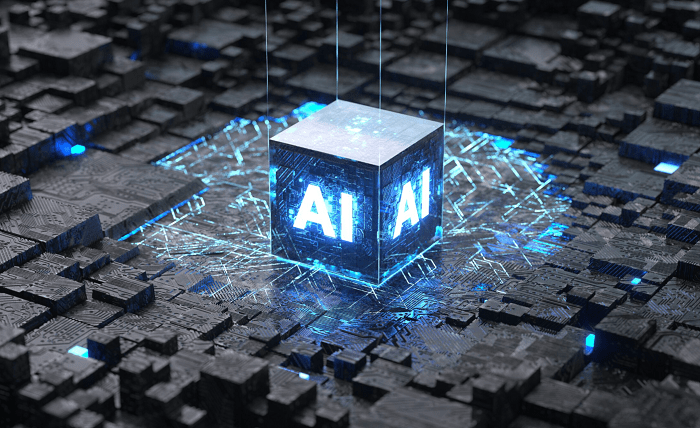In a world overloaded with information, tasks, and constant connectivity, finding ways to simplify daily life is not just a preference—it’s a necessity. Artificial Intelligence (AI) is emerging as one of the most powerful tools for cutting through the noise and automating routine tasks that drain our energy and time.
When applied thoughtfully, AI doesn’t just save minutes—it can reclaim hours each week, reduce decision fatigue, and help us focus on what truly matters.
The Minimalist Approach to Technology
Why Simplicity Matters in the Digital Age
Minimalism is about making intentional choices to remove what doesn’t serve us and keep only what adds value. The same principle applies to technology. Without conscious limits, our devices can create more work than they save—notifications, endless emails, and digital clutter all demand our attention.
AI, when used purposefully, flips that dynamic. It becomes an invisible assistant, working in the background to take care of repetitive, low-value tasks.
How AI Can Simplify Everyday Life
Automating Communication
Smart email filters can sort messages into priority and non-priority folders automatically, while AI-powered chatbots can handle initial responses to customer queries for small business owners.
Managing Schedules
AI assistants like Google Assistant, Siri, or Alexa can schedule meetings, send reminders, and even suggest optimal meeting times based on participant availability.
Personalizing Information Flow
Instead of wading through hundreds of news articles, AI news aggregators can deliver a curated selection based on your interests, reducing time spent on irrelevant content.
The Power of Habit Automation
Morning Routines
From adjusting your smart thermostat to brewing coffee at the right time, AI-powered home systems can ensure your morning starts smoothly without manual input.
Task Management
AI can learn your work patterns and suggest the best time to tackle specific tasks, aligning with your peak productivity hours.
Meal Planning
AI recipe platforms can suggest weekly menus based on your dietary preferences, automatically generating grocery lists and even placing online orders.
Midpoint Insight: Personal AI Companions
One of the most impactful shifts in AI technology is its move toward personalization. Instead of generic automation, modern AI tools adapt to your habits, preferences, and goals over time.
Some advanced platforms, such as Overchat, offer interactive experiences where users can explore AI’s capabilities in real time, asking it to streamline routines, propose habit changes, or even identify hidden inefficiencies. This interactive feedback loop turns AI from a static tool into a dynamic partner in daily life.
Real-World Examples of AI Automation
Smart Homes in Action
Homeowners using AI-integrated systems like Google Nest or Apple HomeKit can automate lighting, climate control, and security—creating energy-efficient, low-maintenance living spaces.
AI in Finance
Automated expense trackers categorize purchases, detect unusual spending, and forecast monthly budgets, reducing the need for manual record-keeping.
Health and Fitness
Wearables equipped with AI analyze activity patterns, sleep quality, and heart rate variability, then adjust fitness plans automatically to meet health goals.
Balancing AI Use with Mindfulness
Avoiding Over-Automation
While AI can handle countless tasks, it’s important to keep a balance. Over-automation can lead to dependency and a loss of personal engagement in meaningful activities.
Privacy and Data Security
AI systems often rely on personal data to function effectively. Choosing platforms with strong privacy policies and on-device processing can protect your information.
Expert Commentary: AI as a Minimalist Tool
Dr. Hana Lee, a cognitive science researcher studying technology’s impact on mental load, explains:
“AI is most valuable when it frees cognitive space. The goal isn’t to let machines live life for you—it’s to remove friction so you can live more intentionally.”
Her perspective highlights the core idea of using AI to enhance life quality, not replace human agency.
Practical Tips for Getting Started with AI Automation
- Identify Repetitive Tasks– Make a list of actions you repeat daily or weekly.
- Choose One Area to Automate– Start small, perhaps with email filtering or meal planning.
- Set Boundaries– Define what AI will and will not handle to avoid loss of control.
- Review and Adjust– Periodically check if the automation still serves its purpose.
The Future of AI in Minimalist Living
We are on the cusp of AI systems that will:
- Anticipate needs before we articulate them.
- Seamlessly coordinate between devices and platforms.
- Adapt to changing goals and life stages.
For minimalists, this future holds the potential for near-frictionless living—where the mundane fades into the background, leaving space for experiences, creativity, and connection.
Conclusion: AI as the Invisible Helper
AI in daily routines isn’t about complexity—it’s about clarity. By automating repetitive, low-value tasks, AI empowers us to live more deliberately, aligning our daily actions with our priorities.
When used mindfully, AI becomes not another source of distraction, but a quiet ally that works in the background, making space for the parts of life that truly matter. In the context of minimalism, it is not the technology itself but the intentional way we use it that creates value.

